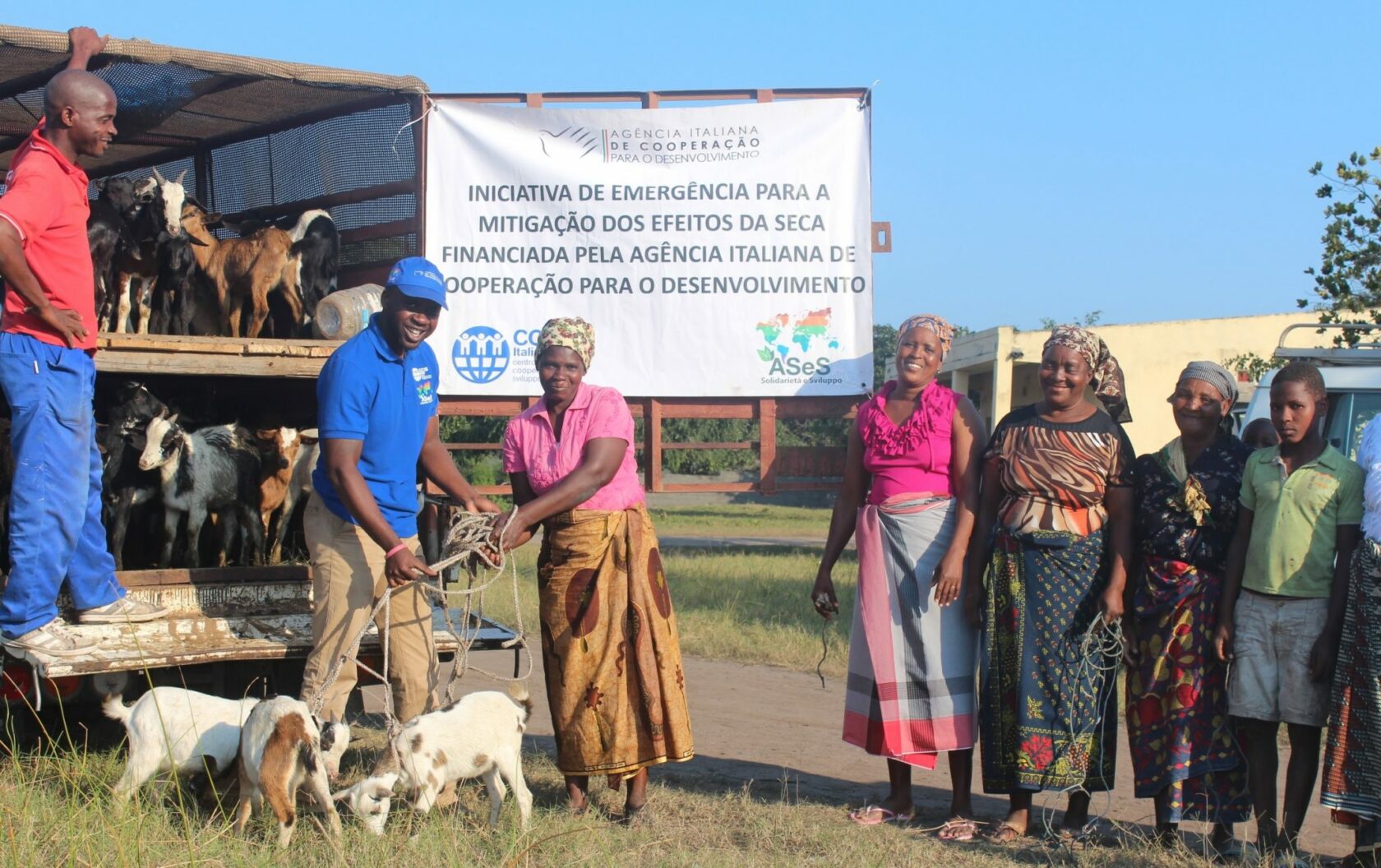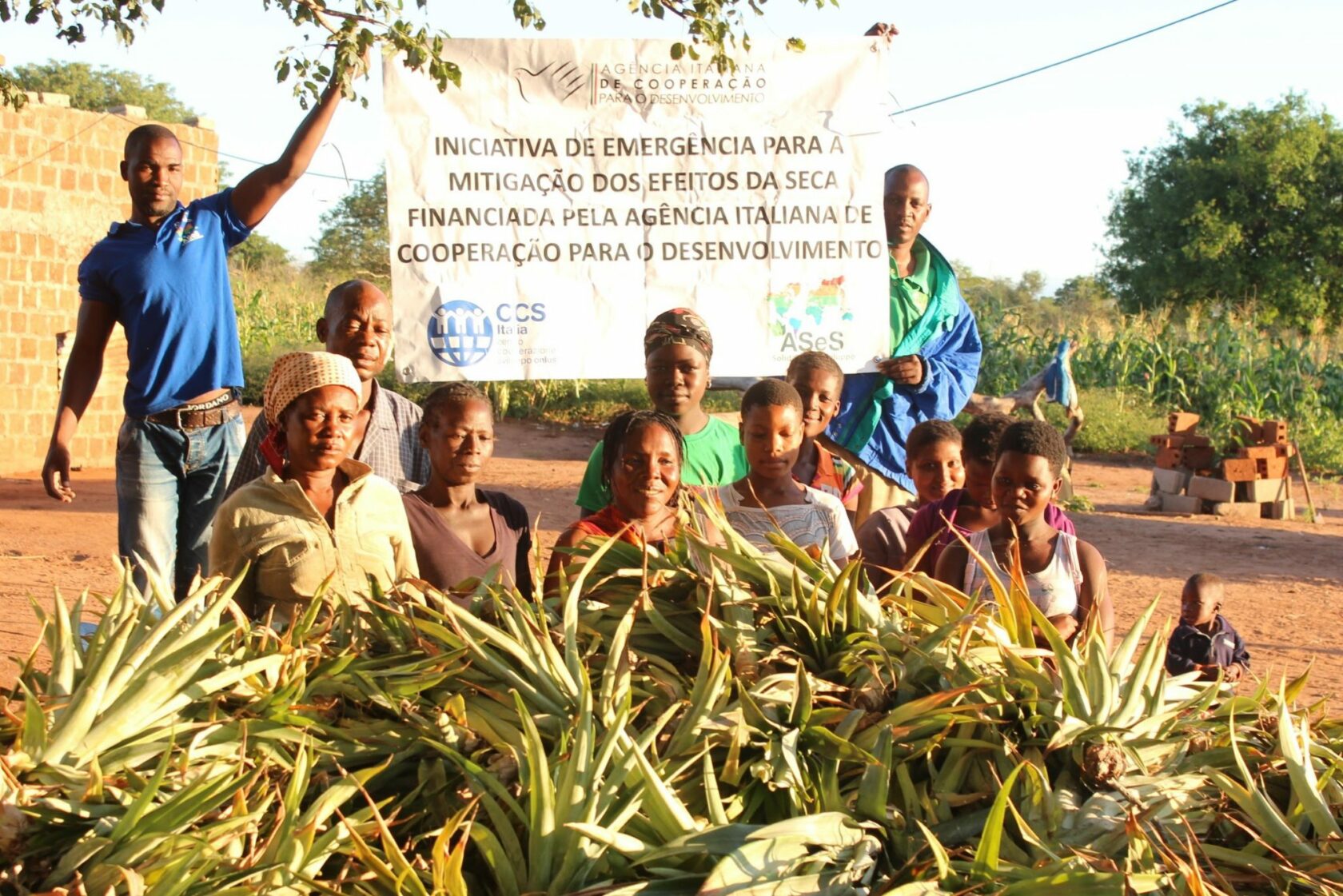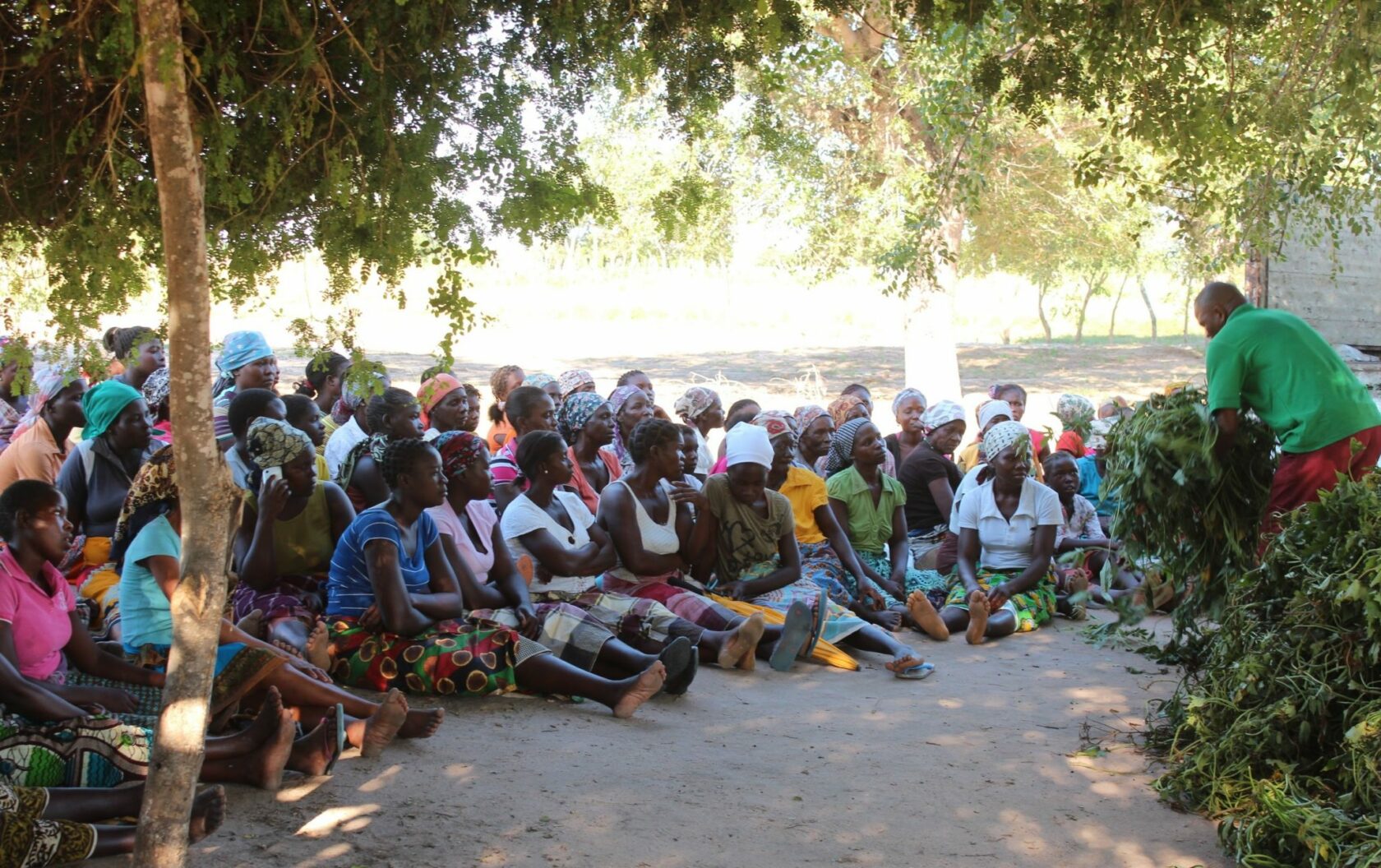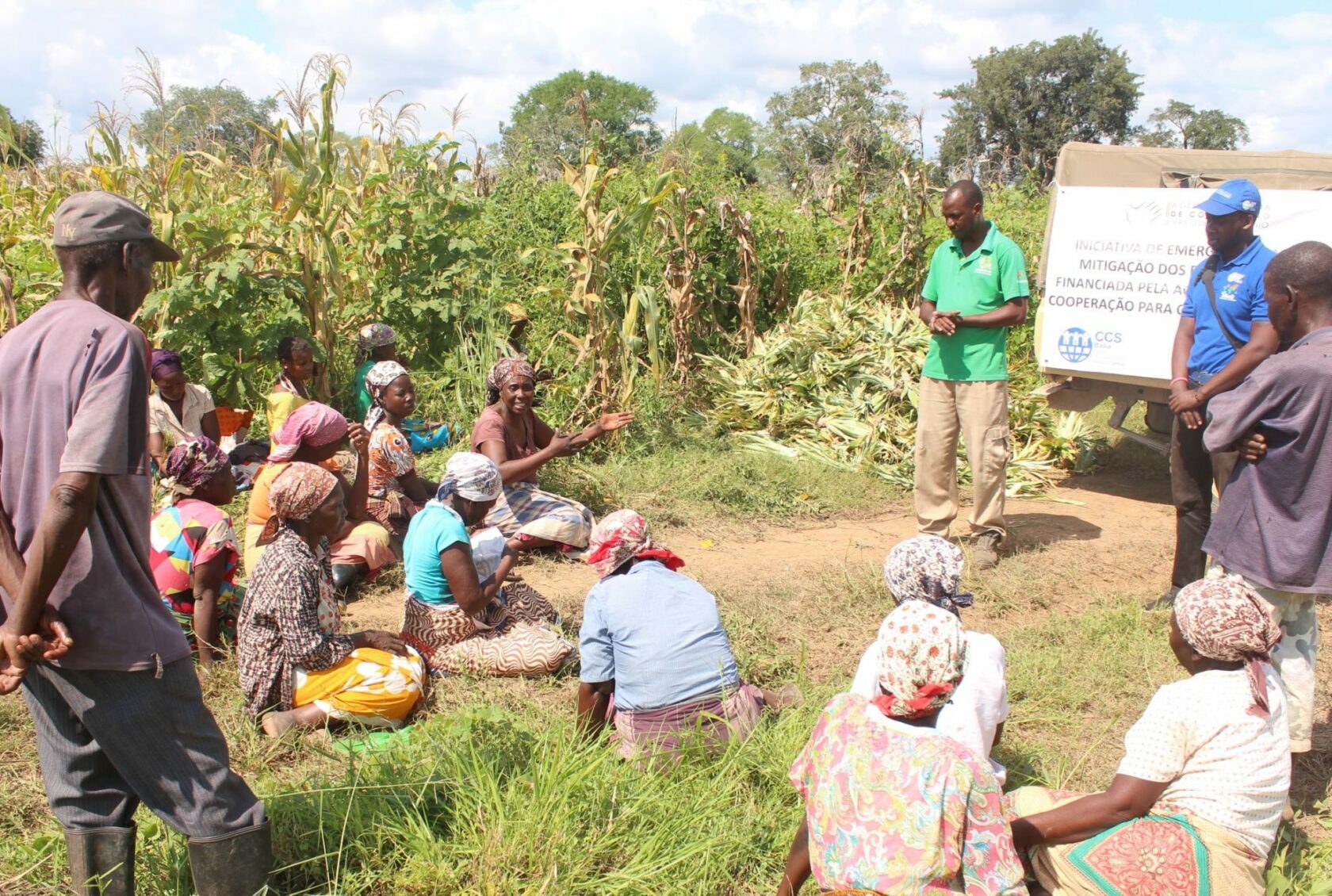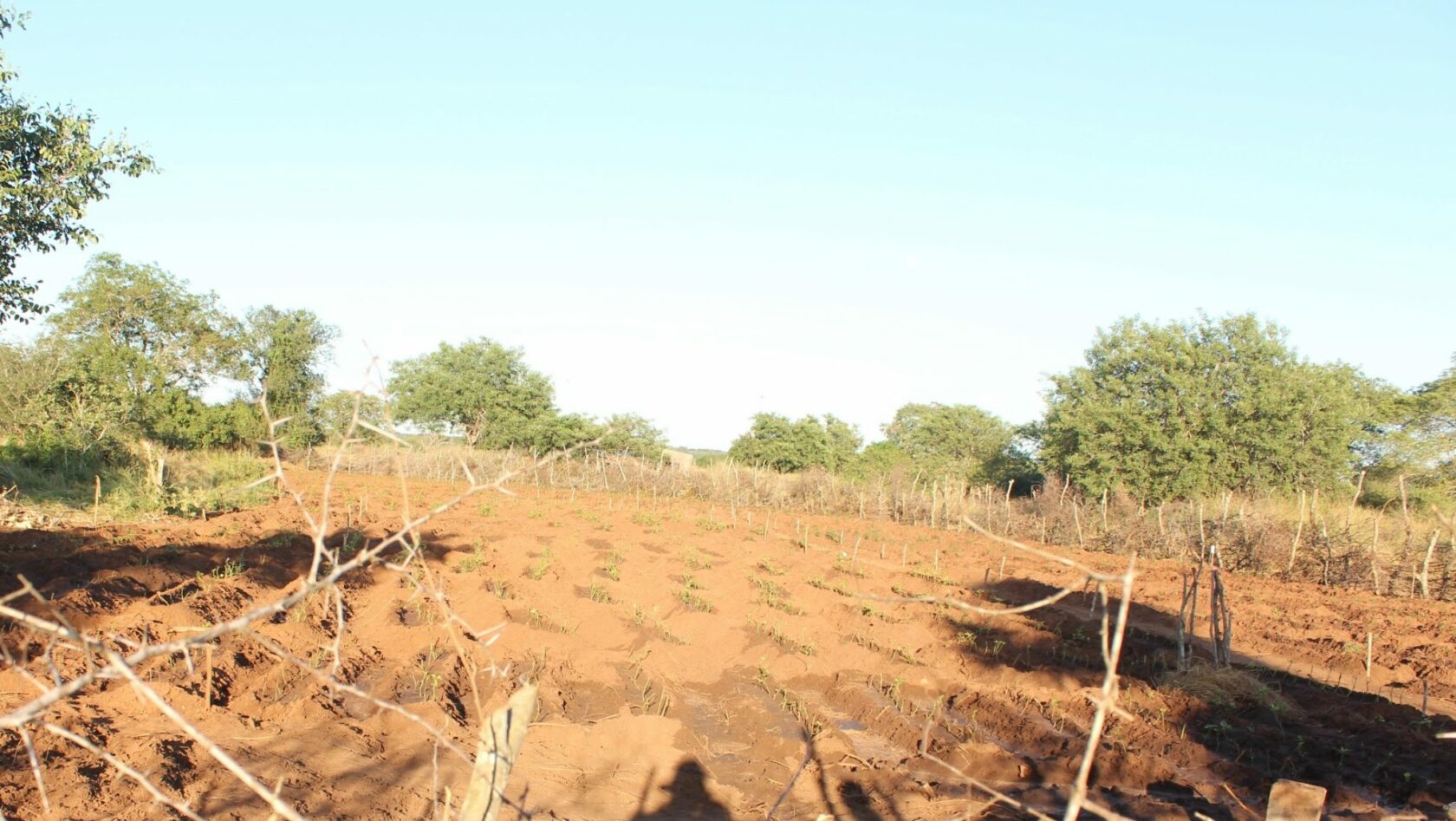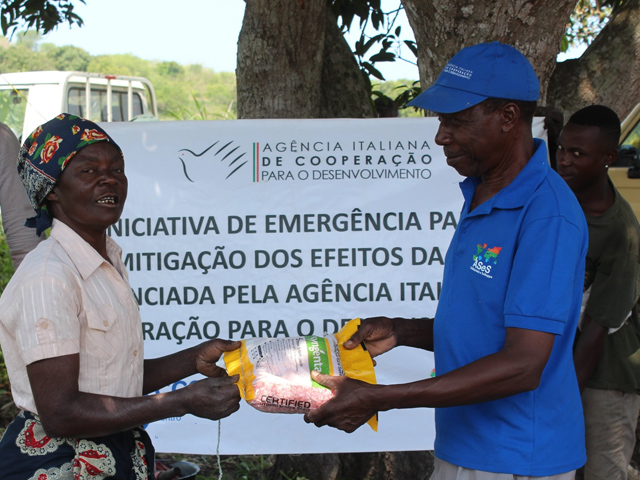We’re working to limit the impact of climate change in Mozambique
General objective
To increase food security and improve the management of natural resources among Mozambican communities of small-scale farmers whose lives are affected by the adverse consequences of climate change.
Specific objective
To mitigate the risks of climate change in the north and south of Mozambique. To optimise water resources, promote varieties and production and storage techniques for cereals and vegetables, and strengthen the links between public institutions and civil society for the management of natural resources.
Expected results
The creation of agricultural production and livestock farming frameworks to mitigate the risks of climate change in Mozambique.
About the project
Mozambique experiences extreme weather. This recently culminated in flooding in the north and droughts in the south of the country, with grave consequences for food security and the future prospects of the people living there.
These weather phenomena exacerbate the consequences of the country’s already troubling hydrogeological instability, with serious repercussions for agriculture (62,000 hectares lost in the south of the country) and livestock (4,000 animals lost in the last year in Maputo Province alone).
Local communities and authorities are powerless and often lack awareness of the link between the climate, food security and the need to protect their land. Agricultural production is predominantly small-scale, and the geographical isolation of farmers often leads them to entrust the sale of their produce to middlemen, resulting in exponential price hikes (e.g. 1,000% for lettuce) and thus penalising producers. Individual initiatives are the only alternative, but they are often unprofitable, while social entrepreneurship is rare.
Our aim is to promote agricultural production and livestock farming techniques that mitigate the risks of climate change. We work to improve the management of water resources, to promote production and storage techniques for cereals and vegetables, and to strengthen the links between public institutions and civil society for the management of natural resources.
We also strive to create an inclusive and sustainable economy and production chain by focusing on social entrepreneurship, the active participation of women, the forming of associations and technical/scientific cooperation.
Project costs
160.000 €
Beneficiaries
490.000 people
- 4.700 students e 50 teachers
- 42 associations and farmer groups
- 100 farmers
Project backer
Ministero degli Affari Esteri e della Cooperazione Internazionale
Project leader

Paolo Gomiero
Country representative
